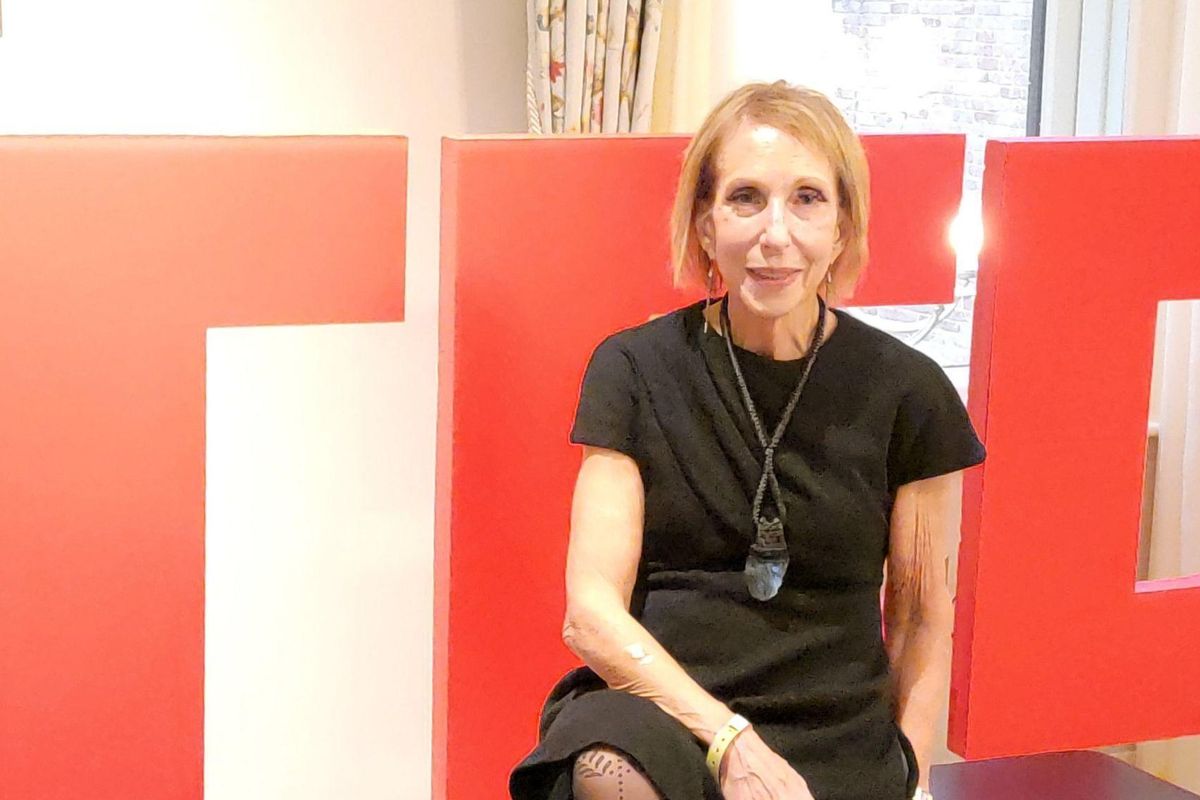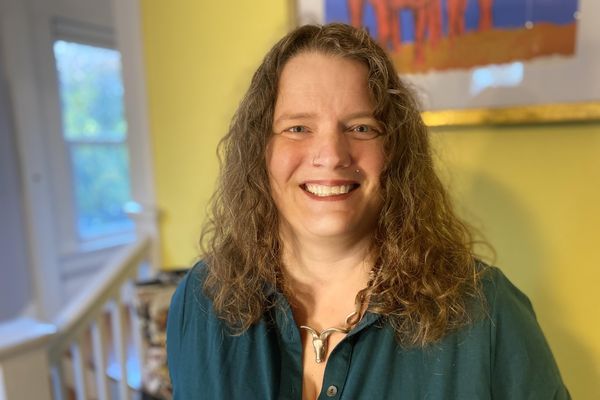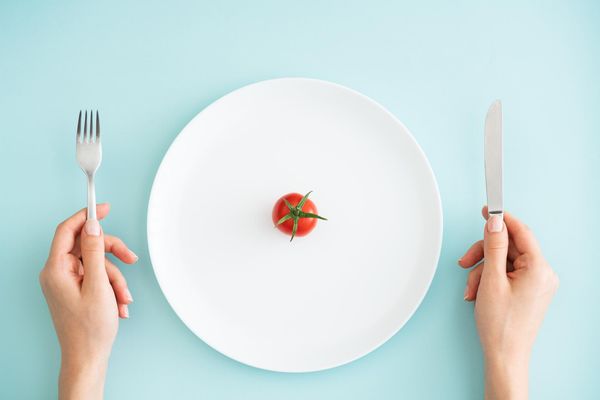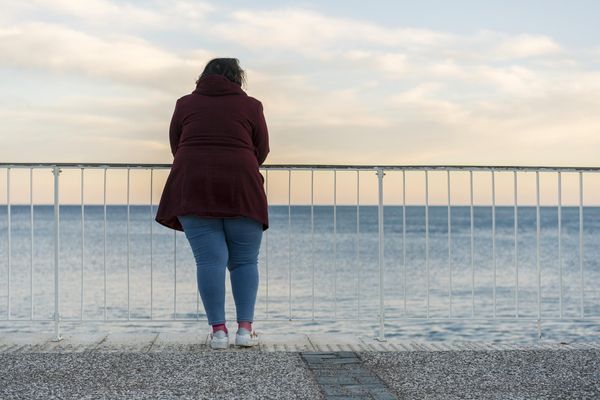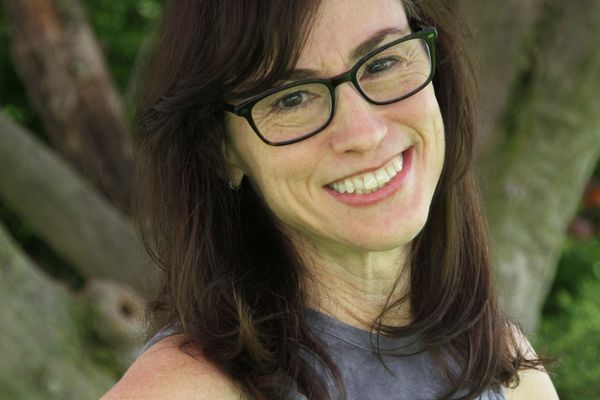As told to Erica Rimlinger
The first part of my journey was with obesity, starting at the age of 2 1/2. I first understood, from my mother's words and actions, that I was "fat" and "fat" was not good, even cause for alarm. Therefore I was not good, or good enough. The message I repeatedly heard was to eat less than everyone around me. Other kids got ice cream as a treat. Not me. I was asked, "Want a taste?"
School made my self-esteem worse. It didn't help that my maiden name is Katzman and 5-year-olds are gifted with the ability to bully and rhyme. I spent my elementary school days as Melinda FATzman. But the real responsibility for my bullying belongs with the teachers and administrators of the school who — not once, not ever — asked kids to stop teasing me. To me, this experience speaks to how deeply ingrained our ideas of weight are. It was and is still socially acceptable to humiliate people with obesity.
Somewhere along the way, I decided to hide how I felt about my weight and acted as though it didn't bother me. I prided myself on being stylish, popular and involved in activities typically identified with the "thin" kids. Nobody could see the pure torture I experienced. On the inside, I constantly thought I wasn't good enough, that I was a failure. Each day I would wake up and tell myself I was going to "be good" — start a diet and stay on it. And each day I would blow it by eating something "bad."
In May 2000, at the age of 45, I reached a moment of clarity. I woke up and, instead of repeating my mantra, "I'm going to be good," I said, "I won't do this anymore." I decided to have weight loss surgery. Two months later, I had the procedure done. The surgery was a success. But what I hadn't realized at the time was that the mind doesn't change at the same rate the body does. Those 45 years of mind messages didn't simply disappear. The noise got softer over time but to this day, it ramps up when I'm under stress. It's a lifelong process of managing the physical and the emotional.
From 2000 to 2016, my new smaller stomach and bypassed intestines helped me lose weight. Since the surgery changed the mechanics of my body, I had to get serious about getting enough nutrition — specifically protein — in each small meal. I also worked out with a trainer and was able to lose weight. I had my obesity under control.
Then in September 2016, my father was hospitalized for cardiac surgery and died shortly thereafter. During this time, food became unappealing. I'd look at the contents of the refrigerator and think, "I can't eat this. It's disgusting." That message wore grooves into my grieving mind and became a habit. At the same time, when I did eat, feeling full was intolerable. Taking advantage of my smaller stomach, I would continue to eat until there was no place for the food to go other than up and out. And so I became functionally bulimic.
This went on for five years, and I experienced extreme weight loss. Friends and family noticed. I was told I looked unhealthy, I wasn't eating enough, and I was too thin. But I had a terrible secret — I could see the bones in my back, my neck, my ribcage, and I loved it. (I now realize that this kind of thinking is part of my illness and is not healthy.) I was finally undeniably thin. Isn't this what I had been trying so hard to accomplish my whole life? Women in our society have long repeated the mantra, "You can never be too thin." If other people internalized this message, I internalized it on steroids.
But you can only trick your mind and body so much. At the end of July 2021, I had a dizzy spell, fell down the stairs and hit my head. A trip to the hospital revealed no serious head trauma but did uncover some disturbing news in my bloodwork. My lab report showed my lactase level, which reveals how well my vital organs get blood, was dangerously elevated. I was basically on a short walk to death. Had I not fallen, I would likely not be here today.
I was forced to confront the fact that I have bulimia and anorexia. I was hospitalized for 10 days and then spent three and a half weeks in an inpatient recovery program. I am now doing an intensive outpatient program.
The fallout of my actions went far beyond my own physical and emotional health. I jeopardized relationships that mean everything to me. Family and friends were angry with me for not telling them what was going on and felt guilty for not seeing it. But I couldn't talk about it. There was the shame I carried around. There was also the fact that I didn't want to stop. I knew if I told anybody, I would be forced to seek treatment, and I wasn't prepared to admit I had a problem, let alone agree to treatment. After all, I thought I looked great. I was finally, finally "good enough."
I'm still in treatment for my disordered eating. I've come to understand my anorexia is just a funhouse-mirror reflection of my obesity. Both result in an unrealistic view of my body, which is called body dysmorphia. With anorexia, I found the messages in my brain to be startlingly similar to those that ran through my head growing up with obesity: "I'm not thin enough and therefore not good enough. Today I'm going to be good." The next thoughts were two sides of the same coin, "You have to not eat" simply replaced "You have to eat." There are added fears on this side of the eating disorder: Eating means I'm gaining weight, and I have to reset the internal alarms that shout, "Gaining weight is bad! Stop!" I had to unplug the alarms: Gaining weight does not mean I'll be severely overweight tomorrow.
As I continue my recovery from a lifelong disordered relationship with eating and food, I work every day to find balance in these relationships. I know being healthy is a marriage of factors beyond a number on a scale and how I think I look in the mirror. It's a new way of thinking, and my recovery isn't linear. Some days are easier than others. I believe speaking out about my eating disorders will help eliminate the stigma associated with obesity, anorexia and bulimia and hope it encourages others who are struggling to speak up and seek help.
After a lifetime of "good and bad" self-messages and thoughts about my weight, I finally understand my identity does not hang on my weight.
This resource was created with support from Novo Nordisk.
- I Didn't Know I Had an Eating Disorder - HealthyWomen ›
- Suffering in Silence: Middle-Aged Women and Eating Disorders ... ›
- I Had An Eating Disorder for 20 Years Before I Knew Anything Was ... ›
- Eating Disorders - HealthyWomen ›
- I Needed Help to Recover from My Eating Disorder - HealthyWomen ›

